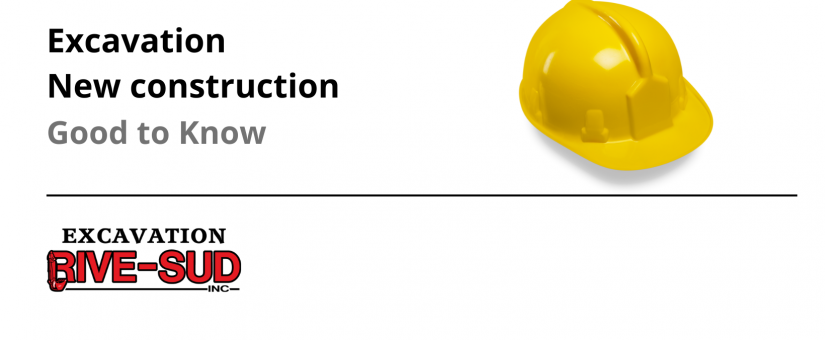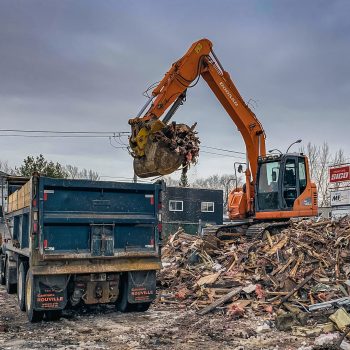
NEW CONSTRUCTION EXCAVATION: GOOD TO KNOW!
- On 12 October 2023
Are you about to start the exciting project of building your own home? To help you through the process, we thought we’d list a few things to consider before you start digging. Since this is literally the foundation of your home, make sure you work with a partner of choice! A botched excavation can cause the soil under your foundation to settle, leading to the collapse of your building. The cost of damage due to poorly executed excavation work is high… Not to mention the serious safety consequences! And that’s not even mentioning the headaches the whole thing could cause you… In short, follow the guide to properly planning excavation work for your new construction!
TYPE OF SOIL
Depending on the composition of the soil, you’re working on, the scope of the work, and therefore the cost, will vary greatly. For example, if the area where you want to build has rocky soil, excavation will be much more complex and time-consuming.
The RBQ (Quebec Building Authority) also warns homeowners about Quebec’s clay soils. This type of soil compresses easily, and it’s essential to take the necessary precautions to limit the risk of subsidence.The RBQ strongly recommends calling in an expert to assess the pressures the soil can withstand.
Before starting the work process, it is important to identify the soil types related to the excavation or trench to be dug. Soil properties can also vary within the same trench (depending on depth, for example). Your excavation contractor should be able to provide you with this information.
CONTAMINATION
Yes, it’s unfortunately possible that the perfect piece of land you’ve just bought is contaminated with some sort of pollutant that could cause the soil’s load-bearing capacity. Don’t panic, a good excavation contractor will be able to identify the problem quickly and ensure that all affected soils are removed in compliance with environmental laws during the work.
UNDISTURBED SOIL AND ORGANIC MATTER
Excavation removes the top layer of soil (soil, vegetation, and organic matter) to prevent settlement or subsidence. These materials run the risk of being crushed under the weight of the construction, or of rotting and causing the foundation to uneven out. Excavation should always be carried out to reach undisturbed soil free of organic matter.
WATER IN THE EXCAVATION
Your excavation partner will make sure that there is no accumulation of water at the bottom of the excavation, so as not to cause any foundation problems.
CAN WE EXCAVATE IN WINTER?
Excavation can be carried out in winter. However, additional measures must be taken to ensure that the work goes smoothly.
First, the bottom of the excavation on which the foundations are to be placed must be kept from freezing, to prevent the ground from swelling when it thaws. A soil’s drainage/water storage capacity has an impact on frost penetration: the more water a soil contains, the more likely it is to freeze.
Whatever your situation, we strongly suggest that you work with excavation specialists for excavation work on your new construction. After all, the quality and durability of your construction depend on it!
Excavation Rive-Sud specializes in excavation for new construction and additions ; choose competent professionals for peace of mind. The work will be carried out to the highest standards, with the utmost attention to detail, and always at fair prices. Contact us for a free quotation!

